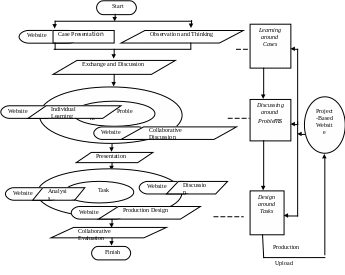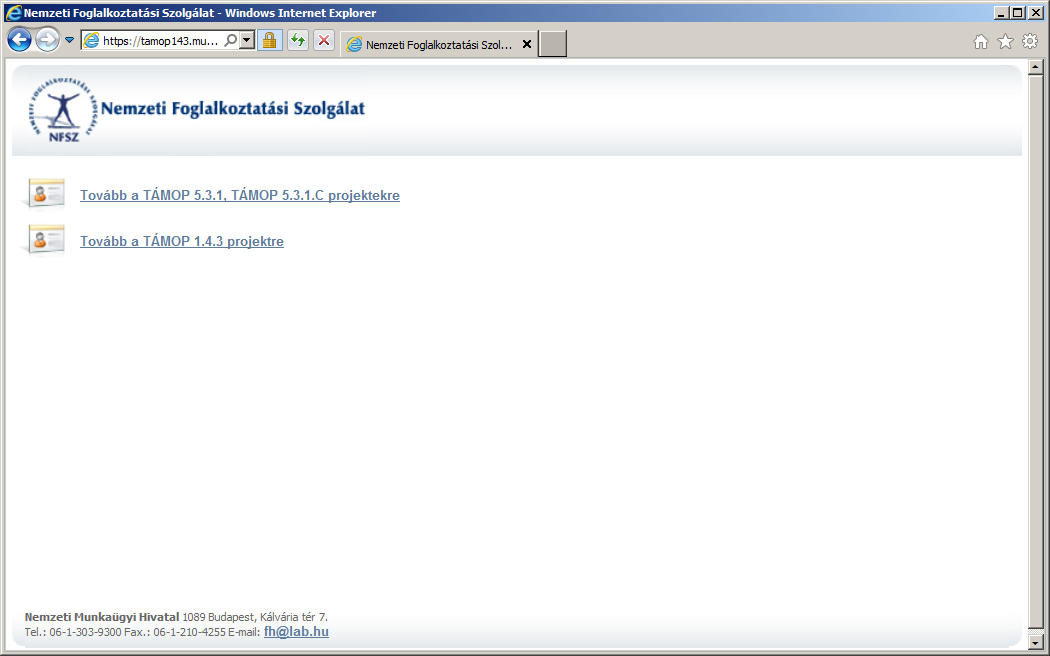4 GCCCE2005 ACTION RESEARCH AND EFFECTIVENESS ANALYSIS OF COURSE
4 GCCCE2005 ACTION RESEARCH AND EFFECTIVENESS ANALYSIS OF COURSE
Action Research and Effectiveness Analysis of Teaching Reform in Project-Based Website
Action Research and Effectiveness Analysis of Course Teaching Reform in Project-Based Website
Xie YouRu
Educational Technology Institute
South China Normal University
510631, Guangdong Province, China
Abstract: According to the need of course teaching reform and quality course construction, this study conducted course teaching reform in project-based website based on the course Principles and Methods of Instructional Design. A developmental learning model in project-based website was put forward by means of three-cycle action research. A comprehensive analysis was conducted to investigate the effectiveness of the course teaching reform measured by the attitudes, ability and quiz scores of students.
Keywords: Project-Based Website, Course Teaching, Action Research, Effectiveness Analysis
Principles and Methods of Instructional Design is a core course of educational technology in Higher Education. According to the need of course teaching reform and quality course construction, this study developed a project-based website named ‘Web-Based Instructional Design’ (http://61.144.60.222:8080/course), and conducted course teaching reform in the website based on the course. During the reform, a developmental learning model in the project-based website was put forward by means of action research. A comprehensive analysis was conducted to investigate the effectiveness of the course teaching reform measured by the attitudes, ability and quiz scores of students.
1. Purpose of Study
1.1. Promoting the Quality Course Construction
According to two official files promulgated by the Ministry of Education P.R.C, which was Notice of the Quality Course Construction in Higher Education and Conduct Strategies on the Quality Course Construction respectively, a large-scale construction and evaluation of the quality course have been initiated in all universities and colleges throughout China from 2003. Principles and Methods of Instructional Design is a core course of educational technology in Higher Education. In order to make it the quality course, the author conducted a study on the quality course construction and teaching reform.
1.2. Upgrading the Function of Project-Based Website
Project-based website is a website developed around a certain project covering one disciplinary or multidisciplinary for exploratory learning. Nowadays, project-based website, one of the new categories of network resources, is frequently and rapidly developed in higher schools throughout China. How to upgrade the function of project-based websites and apply them to promote the course teaching reform is an urgent problem to be solved.
2. Design of Study
2.1. Object of Study
2.1.1. Contents of the teaching experiment. In the study, we selected some contents relevant to instructional design from the course Principles and Methods of Instructional Design as the contents of the teaching experiment. The contents are integrated into a project named ‘Web-Based Instructional Design’. According to the class sessions, the contents of the teaching experiment account for more than 50% of the course contents.
2.1.2. Class and period of teaching experiment. The study lasted three years, including the development of the project-based website, action research and effectiveness analysis of the course teaching reform. During the course of action research, the participants are the 2002-grade undergraduate students of Educational Information Technology College of South China Normal University, amounting to seventy. The period of action research lasted one term.
2.2. Goals and Contents of Study
2.2.1. Goals of the study. The study is purposed to explore a course teaching reform model in the project-based website based on the course Principles and Methods of Instructional Design, so as to improve the effectiveness of the course teaching.
2.2.2. Contents of the study. The contents of the study includes three aspects, which are design and development of a project-based website named ‘Web-Based Instructional Design’, exploration of a course teaching reform model in the project-based website based on the course Principles and Methods of Instructional Design, and effectiveness analysis of the course teaching reform respectively.
2.3. Research Methods
2.3.1 Action Research. This method was mainly used to explore the course teaching reform model.
2.3.2. Evaluation Research. This method was mainly used to analyze and evaluate students’ ability of instructional design.
2.3.3. Questionnaire Investigation. This method was mainly used to measure students’ attitudes towards the course teaching reform.
3. Development of Project-Based Website
Considering the need of course teaching, the project-based website named ‘Web-Based Instructional Design’ was developed. The function of the project-based website is shown as followings: satisfying the need of individual and collaborative learning; providing students with many typical cases and practical tools; establishing the mechanism that teachers and students build the website together and share the website together to promote the development and application of resources.
4. Action Research of Course Teaching Reform in Project-Based Website
Action Research is a research method that all members, including teachers, students, staff and researchers, related with the problems jointly participate in solving problems, intervene in the problem-solving process, and work out the solutions to problems. The implementation of three-cycle action research was discussed in detail in the paper Experimental Research on Developmental Learning Model of Project-Based Website (Xie YouRu, Yu Hong & Yin Rui, 2004) published in the Proceedings of 8TH Global Chinese Conference on Computer in Education. After conducting action research, the goal of this study is achieved. As shown in Figure 1, the model consists of three stages, named Learning around Cases, Discussing around Problems, and Design around Tasks respectively. The term ‘developmental learning model’ is defined that students' learning outcomes (e.g. webpage etc.) are productive, the resources in the project-based website are both students' learning object and learning outcomes, which reflects the characteristic that teachers and students build the website together and share the website together.

Figure 1. The Developmental Learning Model in Project-Based Website
5. Effectiveness Analysis of Course Teaching Reform in Project-Based Website
5.1. Investigation on Attitudes of Students
A ten-item attitude survey was developed to measure forty participants’ attitudes. The forty participants were randomly taken from the above seventy undergraduate students. Statistical data reveal that most students had positive attitude towards the developmental learning model, the project-based website named ‘Web-based Instructional Design’ and the effectiveness of the learning model.
5.2. Evaluation on Ability of Students
Two 25-criterion-item, 4-point evaluation rate (1=poor, 5=excellent) evaluation criterion systems were employed to measure forty participants’ instructional design ability. After data analysis, the results indicated that students has grasped high ability of instructional design and the students’ comprehensive application ability of the basic principles and methods of instructional design was considered to be significantly improved. However, students’ innovation consciousness and creative ability were suggested to be comparative bad.
5.3. Analysis on Quiz Scores of Students
A knowledge quiz was developed to assess how well seventy participants learned the basic principles and methods of instructional design. The quiz scores indicated that the participants learned the basic principles and methods of instructional design well (M=79.3, SD=6.3).
5.4. Assessment on Students’ Participation in the Construction of Project-Based Website
A statistic on the number of students’ design productions uploaded to the project-based website was conducted to assess how well students participated in the construction of project-based website. The statistical result suggested that students made great contribution to the construction of the website.
6. Conclusion
6.1. The Effectiveness of Course Teaching Reform
Students developed positive attitudes towards the developmental learning model in project-based website as well as its effectiveness. Students not only learned the basic principles and methods of instructional design well, but also grasped comprehensive application ability of the basic principles and methods of instructional design. However, some problems, such as how to foster students’ innovation consciousness and improve their creative ability, should be paid more attention in further study.
6.2. The Construction and Development of Course
After three-year course teaching reform and construction, the course Principles and Methods of Instructional Design was certificated and awarded as district-level quality course by authoritative experts from the Department of Education of GuangDong Province in August, 2004. Additionally, the course was recommended to be nation-level quality course by the guidance committeemen of Educational Technology of Higher Education of Ministry of Education P.R.C.
Reference
Xie YouRu, Hong Yu &Yin Rui (2004). Experimental Research on Developmental Learning Model of Project-Based Website. Proceedings of 8TH Global Chinese Conference on Computer in Education.
Xie YouRu, Ma XiuFang, Yu Hong (2003). Design and Development of Project-Based Website named ‘Web-Based Instructional Design’. Chinese e-Educational Technology, vol.5.
Beverly Abbey (2003). Instructional and Cognitive Impacts of Web-Based Education. Beijing: Chinese Light Industry Press.
Chen XiangMing (2003). Qualitative Research in Action Research. Beijing: Education & Science Press.
Tags: action research, in action, course, action, gccce2005, research, analysis, effectiveness
- ZAŁĄCZNIK NR 6 OPIS TAKSACYJNY ODDZ687N POWIERZCHNIA W [HA]
- COMUNICADO DE PRENSA 1ER SESION ORDINARIA AÑO 2007 21
- ANEXO I SOLICITUD EXP NÚM REG MERCAT ARTESÀ
- POWERPLUSWATERMARKOBJECT3 MODELO DECLARACION JURADA PARA PERSONA NATURAL FOGTU16 EN
- EXEMPLE D’AVIS DANS LE JOURNAL OFFICIEL NOM DE
- NAME STATES OF MATTER PROJECT DIRECTION CREATE A BOOKLET
- COMUNICADO DE PRENSA CITELXIX REUNIÓN DEL CCPI LA COMISIÓN
- ESTUDIO DE SEÑALIZACION Y SEGURIDAD VIAL 1INTRODUCCION EL
- ORCHESTRATOR THE SDD RUNTIME ORCHESTRATOR (SRO) IS THE
- ORCHARD IPM CONSULTANTS FOR WISCONSIN 1 JOHN AUE THRESHOLD
- CURRICULUM VITAE DATOS PERSONALES NOMBRE MARIA FONTANA FECHA DE
- ZAKON O JAVNIM CESTAMA (UREDNIČKI PROČIŠĆENI TEKST «NARODNE NOVINE»
- P ROF DR HABIL MATHIAS KLÄUI CURRICULUM VITAE
- VIERNES 01 FESTIVO LUNES 04 ESPAGUETIS ECOLÓGICOS CON TOMATE
- CURRICULUM VITAE PABLO ADRIÁN SGROMO ARQUITECTO JULIO 2011 C
- COMUNE DI MANZIANA LGO G FARA 00066 MANZIANA
- APPLICATION FOR FACULTY SERVICE & DEVELOPMENT (NONUNIT FACULTY) DUE
- KÉPES GYÖRGY A MAGYAR JOGTÖRTÉNET FORRÁSAI SZEMELVÉNYGYŰJTEMÉNY FORRÁSMUTATÓJA IDŐRENDI
- TEACHER’S GUIDE GRADES 5 TO 12 FREEDOM’S IRONY TRAILS
- SPEAK UP FOR A CHILD ATHENSOCONEE CASA PROGRAM INC
- GLI INSIEMI MATEMATICI UN INSIEME MATEMATICO È UN
- COMUNICADO DE LOS PAÍSES MIEMBROS DE LA COMUNIDAD ANDINA
- 45 REF EXPEDIENTE NO 110010325000201200888 00 NO INTERNO 27282012
- 2002 7 (1) (15 €) BOUYER T ‑ CORRECTIONS
- HOW TO SET UP THE CUSTOMER DEFINED PIN STEP1
- ACUERDO SOBRE PROCEDIMIENTOS PARA EL TRÁMITE DE LICENCIAS DE
- LIST OF DECLARED WRITEIN CANDIDATES (LAS LISTAS DE CANDIDATOS
- INTERNATIONAL SERVICE FOR HUMAN RIGHTS SUBMISSION TO THE OFFICE
- ARBEITSBLATT DATIV BITTE SETZE EIN! MIR – DIR –
- COLLEGE OF AGRICULTURE 615 WEST STATE STREET WEST LAFAYETTE
 PROJEKT „SADOVÉ ÚPRAVY V NÁCHODĚ LOKALITA TROJICKÁ“ AKCEPTAČNÍ ČÍSLO
PROJEKT „SADOVÉ ÚPRAVY V NÁCHODĚ LOKALITA TROJICKÁ“ AKCEPTAČNÍ ČÍSLO ORGANIZACIONA JEDINICA GODINA NASLOV URAĐENO ZA RUKOVODILAC SARADNICI OVO
ORGANIZACIONA JEDINICA GODINA NASLOV URAĐENO ZA RUKOVODILAC SARADNICI OVO SOLUCIONARIO A LAS PRUEBAS DE ACCESO A LA UNIVERSIDAD
SOLUCIONARIO A LAS PRUEBAS DE ACCESO A LA UNIVERSIDADZÁKLADNÍ POPIS ODPADU PODLE BODU 2 A 3 PŘÍLOHY
REGULAMENT PENTRU DESFĂŞURAREA CONCURSURILOR ÎN CADRUL AUTORITĂŢII ELECTORALE PERMANENTE
PROJECT BUDGET FORM INSTRUCTIONS FOLLOW THESE INSTRUCTIONS IN COMPLETING
 U B092FF (318) DOUGLAS A DUCEY MICHAEL TRAILOR GOVERNOR
U B092FF (318) DOUGLAS A DUCEY MICHAEL TRAILOR GOVERNORNOVENA AL PADRE PIO DE PIETRELCINA 1° DÍA AMADÍSIMO
 JELEN DOKUMENTUM A TÁMOP 143 NYILVÁNTARTÁSI RENDSZER HASZNÁLATÁT TÁMOGATÓ
JELEN DOKUMENTUM A TÁMOP 143 NYILVÁNTARTÁSI RENDSZER HASZNÁLATÁT TÁMOGATÓANNEXE II AVERTISSEMENT AU(X) (CO)PROPRIÉTAIRE(S) D’UN BIEN DE
 POWERPLUSWATERMARKOBJECT357831064 SETTLEMENTS & BILLING VERSION 565 CONFIGURATION GUIDE FOR
POWERPLUSWATERMARKOBJECT357831064 SETTLEMENTS & BILLING VERSION 565 CONFIGURATION GUIDE FOR13 MAŁOPOLSKICH SZKÓŁ W CZOŁÓWCE OGÓLNOPOLSKIEGO RANKINGU JAK NIE
CHICAGO BAR ASSOCIATION LIMITED SCOPE REFERRAL PANEL APPLICATION AND
 SFPM PURCHASING PURCHASING KEY CONTACTS NAME TELEPHONE EMAIL SUE
SFPM PURCHASING PURCHASING KEY CONTACTS NAME TELEPHONE EMAIL SUECOALITION FOR STUDENTS WITH DISABILITIES PLATFORM ON THE DRAFT
 SOUTH CAROLINA SUPPORT SYSTEM INSTRUCTIONAL PLANNING GUIDE CONTENT AREA
SOUTH CAROLINA SUPPORT SYSTEM INSTRUCTIONAL PLANNING GUIDE CONTENT AREA CITTÀ DI POTENZA SERVIZI DEMOGRAFICI POTENZA 2 MARZO
CITTÀ DI POTENZA SERVIZI DEMOGRAFICI POTENZA 2 MARZOHelping Relationship Inventory Worker (hriw) 1 How Much
 SAMPLE PAPER 11 RUNNING HEAD SAMPLE PAPER (ONE PAGE
SAMPLE PAPER 11 RUNNING HEAD SAMPLE PAPER (ONE PAGEDANGEROUS SUBSTANCES AND EXPLOSIVE ATMOSPHERE REGULATIONS 2002 APPENDIX 2